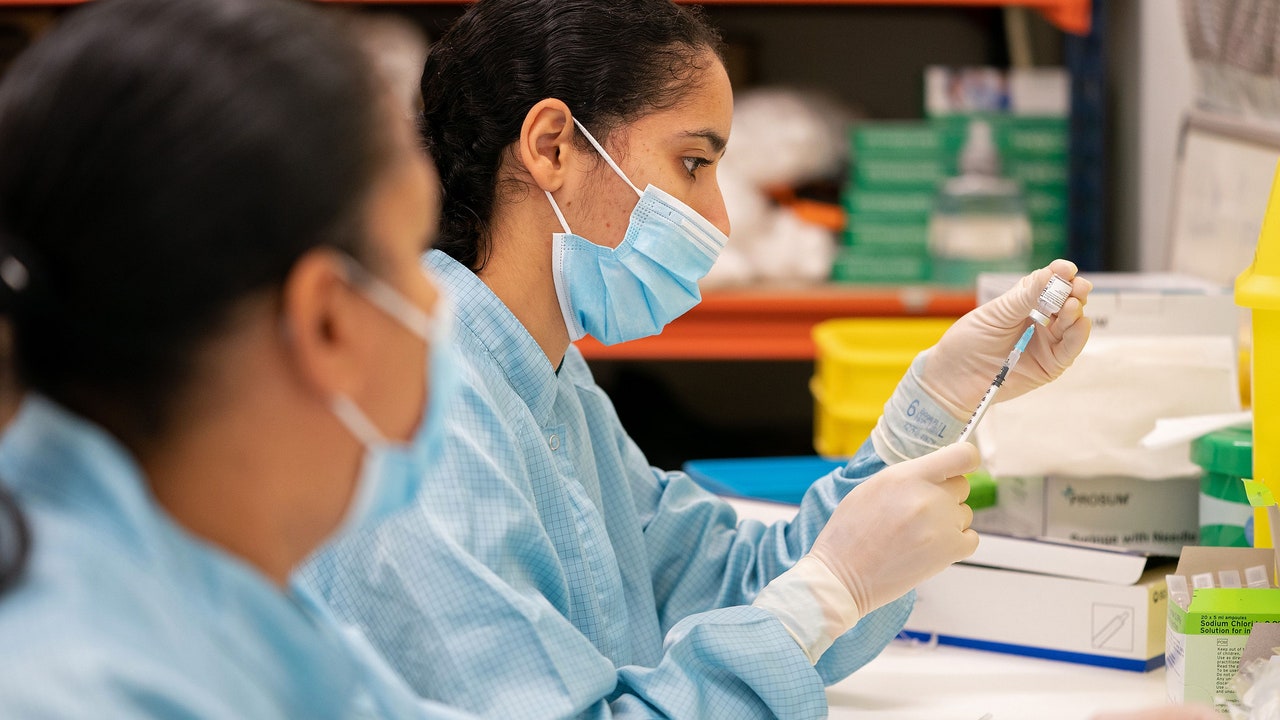Medical history was made on Tuesday, as a 91-year-old U.K. woman became the first person in the country to receive the COVID-19 vaccine. While this represents a major win in the world’s battle against the COVID-19 pandemic, there are still plenty of lingering questions about how the vaccine works, who will receive it, and when. Here, find answers to all those queries and more.
How many vaccines are there?
As of now, two pharmaceutical companies—Pfizer and Moderna—have produced vaccines that have been self-reported as close to 95% effective in clinical trials. Oxford University, the biotech firm AstraZeneca, and others are also working on vaccines, and are likely to seek FDA authorization in the upcoming months.
When will vaccines start being administered in the U.S.?
According to the Centers for Disease Control, the first supply of vaccines will become available in the U.S. before the end of 2020, with a shipment of 170,000 doses of the Pfizer and Moderna vaccines expected to reach New York City by December 15. Those doses will be administered to high-risk healthcare professionals and nursing-home residents and staff. Mayor Bill De Blasio said that vaccine shipments would be coming in weekly, with priority going to those New York neighborhoods most affected by COVID-19.
If you’re curious about when you might be eligible to receive the vaccine, you can check your approximate status via a public tool recently developed by the New York Times. (For context, I—a 27-year-old Brooklyn resident who is not an essential worker and does not have any COVID-related health risks—am in line behind approximately 8.7 million other New Yorkers at higher risk than I am.)
What will the process of getting the vaccine look like?
Almost all of the vaccines currently in development require two shots to be effective, meaning that a person would need to get one shot and follow it up with another one several weeks later. The specifics of the vaccine’s rollout will vary state by state, but federal health officials recently reached a deal with drugstores to distribute the vaccine once it’s approved and widely available.
Will the vaccine be free?
Yes, vaccine doses purchased with U.S. taxpayer dollars will be free, but according to the CDC, vaccination providers will be able to charge an administration fee for giving the shot to someone.
Is the COVID-19 vaccine a one-and-done thing, or does it require yearly vaccinations, like the flu?
Likely the latter, due to fast-growing mutations in the coronavirus. The coronavirus doesn’t mutate as fast as the flu does, but it’s still likely that we’ll need regular immunizations from it (although it’s too soon to be sure).
What percentage of people have said they’ll get the COVID-19 vaccine?
60% of people questioned in November said they would “definitely or probably” take the vaccine if it were available today, a number that rose dramatically from September (and will likely continue to rise as people across the world gain increased familiarity with the vaccine.)
About how many people in the U.S. need to get the vaccine for it to provide effective immunity on a large scale?
It’s still somewhat unclear, but in order for us to return to some semblance of normal life, we’ll first need to achieve what’s called “herd immunity,” which occurs when enough of a critical mass of people have been vaccinated against COVID-19 to dramatically curb its spread. In the U.S., we would need to vaccinate between 197 million and 230 million citizens for that to happen.
